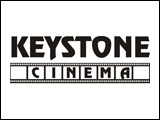A U.S. based agricultural economist anticipates increased growth in North American pork and beef exports.
“North American Meat Exports: Opportunities and Risks” was the focus of the University of Manitoba’s 4th annual Daryl. F. Kraft Lecture last week in Winnipeg.
Dr. Dermot Hayes, a Professor of Economics and Pioneer Hi-Bred International Chair in Agribusiness Trade and Agricultural Policy with Iowa State University, observes there are barriers to imports of North American beef and pork products but, as those barriers come down, one can expect continued growth in exports.
Every time we get a trade agreement we do see a surge in exports.
That’s because importing countries prefer to buy the grain with which to produce the meat domestically but when we have a free trade agreement of course they can’t do that and the economic forces come into play.
We haven’t had a whole lot of free trade agreements.
We have one with Australia and that has caused Australian meat imports to expand.
We have new ones coming up with Columbia and South Korea and again one would expect a huge increase in exports to those two countries once the agreements are implemented but, in general because of the failure of the WTO, we haven’t seen as many agreements in the recent period as we might have expected.
There are no real barriers to trade at the U.S. Canada border and that means that, after adjusting for exchange rates, the price of beef or pork on both sides of the border will be approximately similar.
Given that the two countries are in bed together.
If one country achieves and export success it increases the price of the product in both countries.
Dr. Hayes notes, with the exceptions of the BSE period, the percentage of North American beef and pork production that is exported has grown and he expects continued growth in both in response to economic growth all over the world, increases in demand, increases in production costs especially in Asia and also because the disease issues in Asia seem almost insurmountable.



